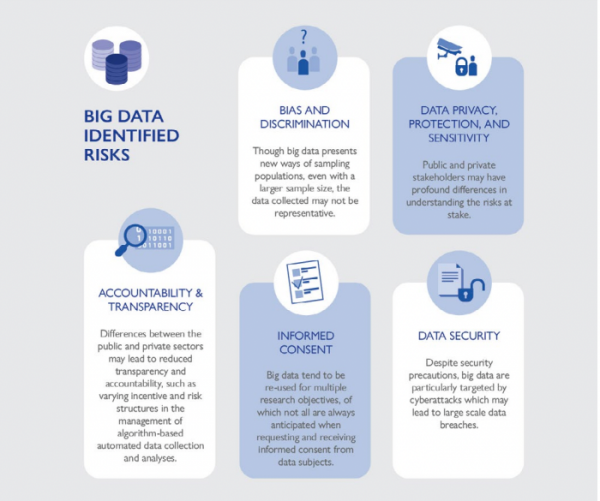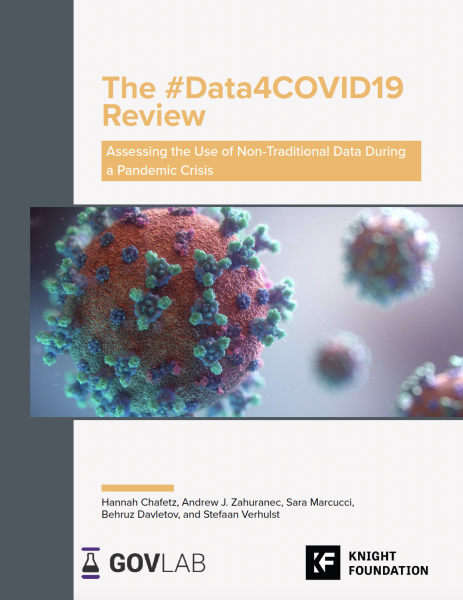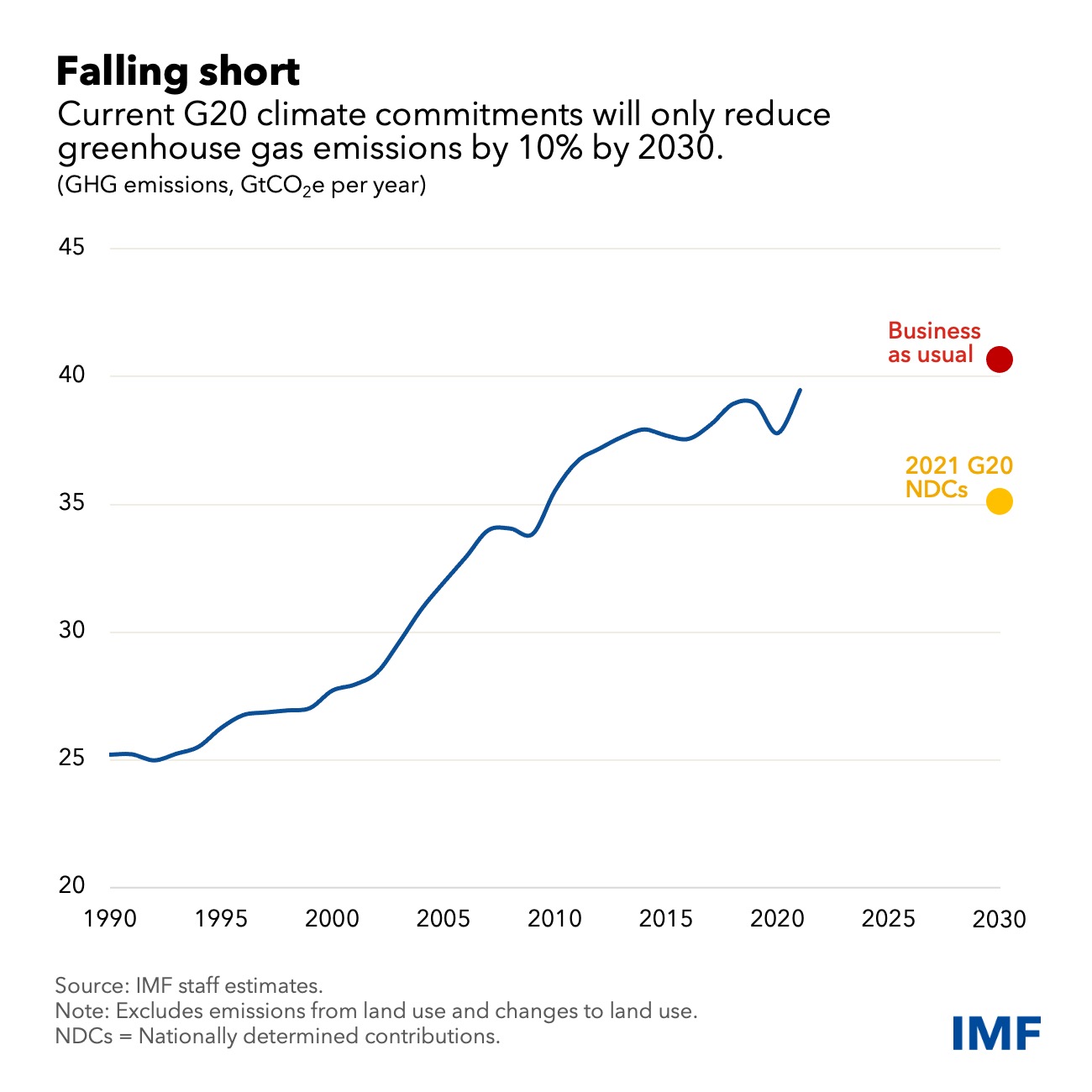OECD Report: “Over the last decade, a large variety of geospatial data sources, such as GPS trajectories, geotagged photos, and social media have become available for research and statistical applications. These new data sources are often generated, voluntarily or non-voluntarily, by private sector organisations and can provide highly granular and timely information to policymakers. Drawing on experiences of several OECD countries, this paper highlights the potential of combining traditional and unconventional data from both public and private sources, and makes the case for facilitating co-operation between data providers and organisations responsible for public policy. In addition, the paper provides a series of best practices on leveraging private data for the public good and identifies opportunities, challenges, and ways forward for public and private sector partnerships on data sharing….(More)”.
The potential of Facebook advertising data for understanding flows of people from Ukraine to the European Union
Paper by Umberto Minora et al: “This work contributes to the discussion on how innovative data can support a fast crisis response. We use operational data from Facebook to gain useful insights on where people fleeing Ukraine following the Russian invasion are likely to be displaced, focusing on the European Union. In this context, it is extremely important to anticipate where these people are moving so that local and national authorities can better manage challenges related to their reception and integration. By means of the audience estimates provided by Facebook advertising platform, we analyse the flows of people fleeing Ukraine towards the European Union. At the fifth week since the beginning of the war, our results indicate an increase in the number of Ukrainian stocks derived from Ukrainian-speaking Facebook user estimates in all the European Union (EU) countries, with Poland registering the highest percentage share (33%) of the overall increase, followed by Germany (17%), and Czechia (15%). We assess the reliability of prewar Facebook estimates by comparison with official statistics on the Ukrainian diaspora, finding a strong correlation between the two data sources (Pearson’s 𝑟=0.9r=0.9, 𝑝<0.0001p<0.0001). We then compare our results with data on refugees in EU countries bordering Ukraine reported by the UNHCR, and we observe a similarity in their trend. In conclusion, we show how Facebook advertising data could offer timely insights on international mobility during crises, supporting initiatives aimed at providing humanitarian assistance to the displaced people, as well as local and national authorities to better manage their reception and integration…(More)”.
Bridging Data Gaps Can Help Tackle the Climate Crisis
Article by Bo Li and Bert Kroese: “A famous physicist once said: “When you can measure what you are speaking about, and express it in numbers, you know something about it”.
Nearly 140 years later, this maxim remains true and is particularly poignant for policymakers tasked with addressing climate mitigation and adaptation.
That’s because they face major information gaps that impede their ability to understand the impact of policies—from measures to incentivize cuts in emissions, to regulations that reduce physical risks and boost resilience to climate shocks. And without comprehensive and internationally comparable data to monitor progress, it’s impossible to know what works, and where course corrections are needed.
This underscores the importance of the support of G20 leaders for a new Data Gaps Initiative to make official statistics more detailed, and timely. It calls for better data to understand climate change, together with indicators that cover income and wealth, financial innovation and inclusion, access to private and administrative data, and data sharing. In short, official statistics need to be broader, more detailed, and timely.
The sector where change is needed the most is energy, the largest contributor to greenhouse gas emissions, accounting for around three-quarters of the total.
Economies must expand their renewable energy sources and curb fossil fuel use, but while there’s been a gradual shift in that direction, the pace is still not sufficient. And not only is there a lack of policy ambition in many cases, there also is a lack of comprehensive and internationally comparable data to monitor progress.
To accelerate cuts to emissions, policymakers need detailed statistics to monitor the path of the energy transition and assist them in devising effective mitigation measures that can deliver the fastest and least disruptive pathway toward net zero emissions…(More)”.
Marine Data Sharing: Challenges, Technology Drivers and Quality Attributes
Paper by Keila Lima et al: “Many companies have been adopting data-driven applications in which products and services are centered around data analysis to approach new segments of the marketplace. Data ecosystems rise from data sharing among organizations premeditatedly. However, this migration to this new data sharing paradigm has not come that far in the marine domain. Nevertheless, better utilizing the ocean data might be crucial for humankind in the future, for food production, and minerals, to ensure the ocean’s health….We investigate the state-of-the-art regarding data sharing in the marine domain with a focus on aspects that impact the speed of establishing a data ecosystem for the ocean.…We conducted an exploratory case study based on focus groups and workshops to understand the sharing of data in this context. Results: We identified main challenges of current systems that need to be addressed with respect to data sharing. Additionally, aspects related to the establishment of a data ecosystem were elicited and analyzed in terms of benefits, conflicts, and solutions…(More)”.
Is Facebook’s advertising data accurate enough for use in social science research? Insights from a cross-national online survey
Paper by André Grow et al: “Social scientists increasingly use Facebook’s advertising platform for research, either in the form of conducting digital censuses of the general population, or for recruiting participants for survey research. Both approaches depend on the accuracy of the data that Facebook provides about its users, but little is known about how accurate these data are. We address this gap in a large-scale, cross-national online survey (N = 137,224), in which we compare self-reported and Facebook-classified demographic information (sex, age and region of residence). Our results suggest that Facebook’s advertising platform can be fruitfully used for conducing social science research if additional steps are taken to assess the accuracy of the characteristics under consideration…(More)”.
Ethical Considerations in Re-Using Private Sector Data for Migration-Related Policy
IOM practitioner’s paper: “This paper assesses the ethical risks of using non-traditional data sources to inform migration related policymaking and suggests practical safeguards for various stages during the data cycle. The past decade has witnessed the rapid growth of non-traditional data (social media, mobile phones, satellite data, bank records, etc.) and their use in migration research and policy. While these data sources may be tempting and shed light on main migration trends, ensuring the ethical and responsible use of big data at every stage of migration research and policymaking is complex.
The recognition of the potential of new data sources for migration policy has grown exponentially in recent years. Data innovation is one of the crosscutting priorities of IOM’s Migration Data Strategy.
Further, the UN General Assembly recognises rapid technological developments and their potential in
achieving the Sustainable Development Goals and the Global Compact for Safe, Orderly and Regular Migration highlights the importance of harnessing data innovation to improve data and evidence for informed policies on migration. However, with big data comes big risks. New technological developments have opened new challenges, particularly, concerning data protection, individual privacy, human security,
and fundamental rights. These risks can be greater for certain migrant and displaced groups.
The identified risks are:…(More)” (see also Big Data for Migration Alliance)

How government can capitalise on a revolution in data sharing
Article by Alison Pritchard: “A watershed moment in the culture of data sharing, the pandemic has led to the use of linked data increasingly becoming standard practice. From linking census and NHS data to track the virus’s impact among minority ethnic groups, to the linking of timely local data sources to support local authorities’ responses, the value of sharing data across boundaries was self-evident.
Using data to inform a multidisciplinary pandemic response accelerated our longstanding work on data capability. To continue this progress, there is now a need to make government data more organised, easier to access, and integrated for use. Our learning has guided the development of a new cloud-based platform that will ensure that anonymised data about our society and economy are now linked and accessible for vital research and decision-making in the UK.
The idea of sharing data to maximise impact isn’t new to us at the ONS – we’ve been doing this successfully for over 15 years through our well-respected Secure Research Service (SRS). The new Integrated Data Service (IDS) is the next step in this data-sharing journey, where, in a far more advanced form, government will have the ability to work with data at source – in a safe and secure environment – rather than moving data around, which currently creates friction and significant cost. The service, being compliant with the Digital Economy Act, opens up opportunities to capitalise on the often-underutilised research elements of that key legislation.
The launch of the full IDS in the spring of 2023 will see ready-to-use datasets made available to cross-government teams and wider research communities, enabling them to securely share, link and access them for vital research. The service is a collaboration among institutions to work on projects that shed light on some of the big challenges of the day, and to provide the ability to answer questions that we don’t yet know we need to answer…(More)”.
The Data4COVID-19 Review: Assessing the Use of Non-Traditional Data During a Pandemic Crisis
Report by Hannah Chafetz, Andrew J. Zahuranec, Sara Marcucci, Behruz Davletov, and Stefaan Verhulst: “As the last two years of the COVID-19 pandemic demonstrate, pandemics pose major challenges on all levels–with cataclysmic effects on society.
Decision-makers from around the world have sought to mitigate the consequences of COVID-19 through the use of data, including data from non-traditional sources such as social media, wastewater, and credit card and telecommunications companies. However, there has been little research into how non-traditional data initiatives were designed or what impacts they had on COVID-19 responses.

Over the last eight months, The GovLab, with the support of The Knight Foundation, has sought to fill this gap by conducting a study about how non-traditional data (NTD) sources have been used during COVID-19.
On October 31st, The GovLab published the report: “The COVID-19 Review: Assessing the Use of Non-Traditional Data During a Pandemic Crisis.” The report details how decision makers around the world have used non-traditional sources through a series of briefings intended for a generalist audience.
The briefings describe and assess how non-traditional data initiatives were designed, planned, and implemented, as well as the project results.
Findings
The briefings uncovered several findings about why, where, when, and how NTD was used during COVID-19, including that:
- Officials increasingly called for the use of NTD to answer questions where and when traditional data such as surveys and case data were not sufficient or could not be leveraged. However, the collection and use of traditional data was often needed to validate insights.
- NTD sources were primarily used to understand populations’ health, mobility (or physical movements), economic activity, and sentiment of the pandemic. In comparison with previous dynamic crises, COVID-19 was a watershed moment in terms of access to and re-use of non-traditional data in those four areas.
- The majority of NTD initiatives were fragmented and uncoordinated, reflecting the larger fragmented COVID-19 response. Many projects were focused on responding to COVID-19 after outbreaks occurred. This pattern reflected an overall lack of preparedness for the pandemic and need for the rapid development of initiatives to address its consequences.
- NTD initiatives frequently took the form of cross-sectoral data partnerships or collaborations developed to respond to specific needs. Many institutions did not have the systems and infrastructure in place for these collaborations to be sustainable.
- Many of the NTD initiatives involving granular, personal data were implemented without the necessary social license to do so–leading to public concerns about ethics and hindering public trust in non-traditional data.
Stefaan Verhulst, Co-Founder and Chief R&D of The GovLab explains: “The use of NTD offers growing potential during crisis situations. When managed responsibly, NTD use can help us understand the current state of the crisis, forecast how it will progress, and respond to different aspects of it in real-time.”…(More)”.
Data for Social Good: Non-Profit Sector Data Projects
Open Access Book by Jane Farmer, Anthony McCosker, Kath Albury & Amir Aryani: “In February 2020, just pre-COVID, a group of managers from community organisations met with us researchers about data for social good. “We want to collaborate with data,” said one CEO. “We want to find the big community challenges, work together to fix them and monitor the change we make over ten years.” The managers created a small, pooled fund and, through the 2020–2021 COVID lockdowns, used Zoom to workshop. Together we identified organisations’ datasets, probed their strengths and weaknesses, and found ways to share and visualise data. There were early frustrations about what data was available, its ‘granularity’ and whether new insights about the community could be found, but about half-way through the project, there was a tipping point, and something changed. While still focused on discovery from visualisations comparing their data by suburb, the group started to talk about other benefits. Through drawing in staff from across their organisations, they saw how the work of departments could be integrated by using data, and they developed new confidence in using analytics techniques. Together, the organisations developed an understanding of each other’s missions and services, while developing new relationships, trust and awareness of the possibilities of collaborating to address community needs. Managers completed the pilot having codesigned an interactive Community Resilience Dashboard, which enabled them to visualise their own organisations’ data and open public data to reveal new landscapes about community financial wellbeing and social determinants of health. They agreed they also had so much more: a collective data-capable partnership, internally and across organisations, with new potential to achieve community social justice driven by data.
We use this story to signify how right now is a special—indeed critical—time for non-profit organisations and communities to build their capability to work with data. Certainly, in high-income countries, there is pressure on non-profits to operate like commercial businesses—prioritising efficiency and using data about their outputs and impacts to compete for funding. However, beyond the immediate operational horizon, non-profits can use data analytics techniques to drive community social justice and potentially impact on the institutional capability of the whole social welfare sector. Non-profits generate a lot of data but innovating with technology is not a traditional competence, and it demands infrastructure investment and specialist workforce. Given their meagre access to funding, this book examines how non-profits of different types and sizes can use data for social good and find a path to data capability. The aim is to inspire and give practical examples of how non-profits can make data useful. While there is an emerging range of novel data for social good cases around the world, the case studies featured in this book exemplify our research and developing thinking in experimental data projects with diverse non-profits that harnessed various types of data. We outline a way to gain data capability through collaborating internally across departments and with other external non-profits and skilled data analytics partners. We term this way of working collaborative data action…(More)”.
Wicked Problems Might Inspire Greater Data Sharing
Paper by Susan Ariel Aaronson: “In 2021, the United Nations Development Program issued a plea in their 2021 Digital Economy Report. “ Global data-sharing can help address major global development challenges such as poverty, health, hunger and climate change. …Without global cooperation on data and information, research to develop the vaccine and actions to tackle the impact of the pandemic would have been a much more difficult task. Thus, in the same way as some data can be public goods, there is a case for some data to be considered as global public goods, which need to be addressed and provided through global governance.” (UNDP: 2021, 178). Global public goods are goods and services with benefits and costs that potentially extend to all countries, people, and generations. Global data sharing can also help solve what scholars call wicked problems—problems so complex that they require innovative, cost effective and global mitigating strategies. Wicked problems are problems that no one knows how to solve without
creating further problems. Hence, policymakers must find ways to encourage greater data sharing among entities that hold large troves of various types of data, while protecting that data from theft, manipulation etc. Many factors impede global data sharing for public good purposes; this analysis focuses on two.
First, policymakers generally don’t think about data as a global public good; they view data as a commercial asset that they should nurture and control. While they may understand that data can serve the public interest, they are more concerned with using data to serve their country’s economic interest. Secondly, many leaders of civil society and business see the data they have collected as proprietary data. So far many leaders of private entities with troves of data are not convinced that their organization will benefit from such sharing. At the same time, companies voluntarily share some data for social good purposes.
However, data cannot meet its public good purpose if data is not shared among societal entities. Moreover, if data as a sovereign asset, policymakers are unlikely to encourage data sharing across borders oriented towards addressing shared problems. Consequently, society will be less able to use data as both a commercial asset and as a resource to enhance human welfare. As the Bennet Institute and ODI have argued, “value comes from data being brought together, and that requires organizations to let others use the data they hold.” But that also means the entities that collected the data may not accrue all of the benefits from that data (Bennett Institute and ODI: 2020a: 4). In short, private entities are not sufficiently incentivized to share data in the global public good…(More)”.

